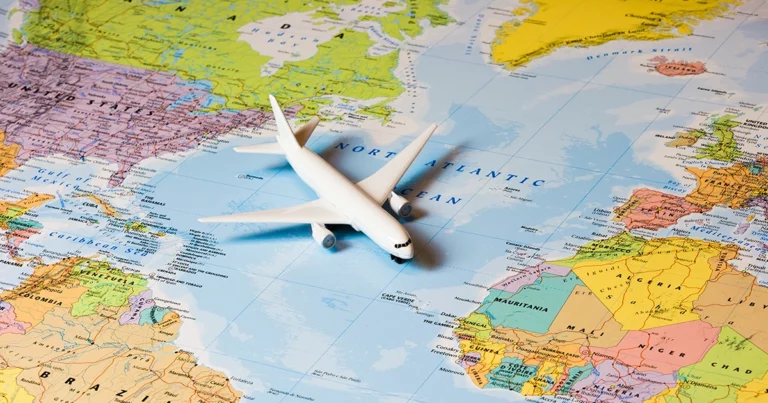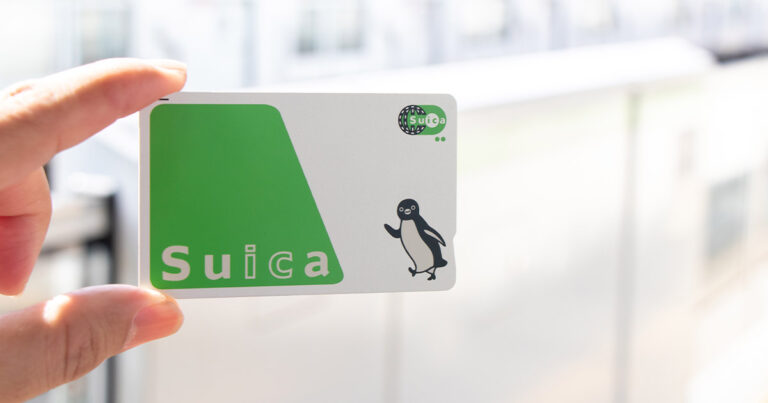Be crisis-ready: Tips for any weather condition and natural disasters

This article covers:
Who doesn’t enjoy the beautiful rains and summer breeze? But Mother Nature has her own way of reminding us about her power every now and then. Unpredictable weather and natural disasters can hit any place at any time, and you don’t want to be caught off guard. You need to watch out for hurricanes, floods, earthquakes and other calamities that might come your way.
Because let’s be honest, can you ever be too prepared when it comes to weather shenanigans? Oh, and we’re not just stopping at weather education, folks. We’ll hook you up with emergency preparedness tips to ensure you’re ready for the unexpected.
Floods
It’s like the unwanted guest that just won’t leave, and they always bring water with them. Whether it’s a measly couple of inches or enough to make the neighbourhood sink, floods have a knack for ruining your day – and your house, car, and pretty much anything that happens to be in its way.
Oh, and did we mention, floods are everywhere? No matter where you live or travel to, if you’re not in the Sahara, you’re at risk of flooding during the rains.
Earthquakes
Tectonic plates shifting around is the game, and earthquakes are the result. If you think earthquakes aren’t bad enough, they can also cause volcanoes, fires, and even tsunamis. Yikes.
Earthquakes can strike at varying intensities just about anywhere in the world, but you need to be extra prepared if you’re in and around earthquake-prone zones like California, Japan, Nepal, Indonesia, Australia and Southern Europe.
Tsunami
Basically, a tsunami is a giant wave that can sweep away entire towns and cities. And no, it’s not caused by Poseidon getting angry or anything like that. It’s actually the result of some serious seismic activity under the ocean floor. When an earthquake, volcanic eruption, or even a meteor impact happens underwater, it can cause a rapid displacement of water that builds up into a towering wave.
So if you were planning on retiring to a cosy beachfront property in East Asia, eastern Australia, New Zealand or the west coasts of North and South America, you might want to reconsider. It turns out that these areas are considered the “most at risk” for tsunamis. And let’s be real, no one wants to find themselves surfing on a wave the size of a skyscraper.
As it turns out, even if you live in an area with ice and snow, you’re not completely safe from these massive waves. In fact, any country in the world with a coastline can experience a tsunami. So lets all hope that Mother Nature decides to take a chill pill and spare us from any potential watery disasters.
Blizzards
It’s the time when the weatherman predicts a blizzard and suddenly everyone in the city is rushing to the grocery store to stock up on bread and milk. But it’s not the snow you should be worried about, it’s those pesky high-speed winds that come along with a blizzard. And let’s not forget about the dangerous driving conditions it brings.
So here’s a friendly reminder to not only bundle up with extra layers but also to know the signs of hypothermia and frostbite to avoid any injuries. And while you’re at it, why not safeguard your water source by insulating your pipes? Let’s be real, no one wants to go without running water for days.
Typhoon
All that wind and rain, like a giant washing machine for the planet. And let’s not forget the destruction, because nothing says excitement like watching a roof fly off a building. But seriously folks, typhoons are no joke.
They make up a third of the world’s tropical cyclones and are most commonly found in China, Japan, Taiwan, Vietnam and the Philippines. So if you’re planning a vacation to those areas, maybe avoid booking a trip between June and November.
Hurricane
Did you know that typhoons and hurricanes are like distant cousins, but not quite? They’re technically the same tropical cyclone but, you know, with a little twist here and there. It typically develops in the Atlantic or North Eastern Pacific Ocean and the cyclone actually rotates *gasp* clockwise.
There’s actually a designated “hurricane season” in certain regions. So if you don’t want to be caught off guard when the winds start howling, it’s probably a good idea to do your research before you plan that trip.
Heatwaves
Ah, the sweet embrace of summer. Bring on the beach trips and the barbecues! Sure, we all love a good tan, but have you ever experienced dehydration, overheating, or heat stroke caused by heat waves? Spoiler alert: it’s not fun. And let’s not forget about heat exhaustion – yes, it’s a thing! So the next time you’re sunbathing or exploring a sweltering city, be wary of the heatwaves. Stay hydrated, wear sunscreen, and don’t forget your parasol.
Wildfires
It’s not the kind of fire you want to cosy up to with a cup of hot cocoa.
Wildfires are huge, destructive and uncontrollable. The worst part? This natural disaster doesn’t discriminate when it comes to its victims. Trees? Toast. Plants? Burnt to a crisp. Animals? See ya later.
And let’s not forget the pollution party they leave behind, turning the air and water into one giant dirty martini.
So if emergency services tell you to leave, do it! Don’t worry about grabbing your favourite childhood stuffed animal or even your prized possessions. Just go. And don’t even think about going back to your house or hotel. That’s how people get injured or worse. Also, make sure to have N95 masks on hand for everyone in the family to protect against the wildfire’s smoky aftermath.
3 tips to prepare for natural disasters
Get your home ready with self-sustainable resource
Home is where the heart is. But in a crisis, home is where the heart attack is – unless you’re prepared.
Governments advise us to hunker down and stay put when natural calamities strike, but that’s easier said than done. To survive two weeks without external assistance, you’ll need to channel your inner survival expert and stock up on essentials.
Just one simple rule to keep in mind: store what you use, use what you store. Water, food, and daily consumables like toilet paper and batteries are all on the list of must-haves. Let’s focus on water for a second. Filling up a few bottles just won’t cut it. Get yourself some proper water storage tanks. As for the food, stock up on extra stuff you normally eat anyway, which is great for rotation purposes. Alternatively, bust opens those “survival food” cans in dire situations.
Build your “go bag”
Picture this: you’re minding your own business at home when suddenly the unthinkable happens. Whether it’s a wildfire, a tornado, or a zombie invasion (hey, it could happen), you only have a few seconds to grab your essentials and go. That’s where the trusty “go bag” comes in, filled with all the essentials you need to survive and thrive in any scenario.
What do you pack in that bag? Consider things like a first-aid kit, water purification tablets, ready-to-eat meals, and of course, cash. And let’s not forget the less glamorous items, like soap and toilet paper (because hygiene is always important, folks).
There’s no such thing as over-prepared
Finally, remember that there’s no such thing as being too prepared because a disaster can strike anywhere, anytime. In such situations, the emergency systems and first responders are supposed to swoop in and save the day. The problem is, they can only do so much when they’re spread too thin. So instead of waiting around for help, try to keep calm and do the best you can.
3 additional tips for expats
As an expat, you’re not just “far from home,” you’re in a totally different location that may not be as familiar. No one wants to imagine being stuck in a flood, earthquake, or any disaster that can arise. It’s better to be safe than sorry, and here are some additional steps to take:
Have an emergency fund in place
Think of the emergency fund as your lifesaver, your safety net, your rainy-day fund. Trust us, you don’t want to be caught empty-handed when disaster strikes. Plan ahead and be prepared – it could mean the difference between riding out the storm with ease or being stuck in the mud (literally).
Make copies of documents
Part of that plan involves having all your important documents saved and ready to go. We’re talking copies of your deeds and titles, insurance policies, birth certificates… you name it, you need it. And to make sure you’re really prepared, it’s best to have these copies in both physical and digital form.
Register with your embassy
Embassy registration may sound tedious, but it’s actually super important. Here’s the lowdown: it’s when you give your home country’s embassy a heads-up that you’ll be travelling abroad. By doing this, you get some sweet benefits and extra support to help keep you safe during your trip.
Sure, it’s not technically required, but if you want some peace of mind while you’re trotting around the globe, it’s highly recommended.
Before you go…
As an expat, there are a few things you need to prepare for language barriers, culture shock, and unpredictable weather. While you can’t control when a typhoon or earthquake is going to hit, you can control how you send or receive money during tough times. That’s where Instarem comes in handy.

With fast, easy and affordable transfers, you can quickly send money abroad to loved ones or get the funds you need to rebuild after a disaster. So, whether you’re living in a place prone to natural disasters or just experiencing some bad weather, you can rest easy knowing your financial needs are covered with Instarem. Don’t let Mother Nature rain on your financial parade, download the app or sign up on the web and see how easy it is to send money with Instarem.
Disclaimer: This article is intended for informational purposes only. All details are accurate at the time of publishing. Instarem has no affiliation or relationship with products or vendors mentioned.
Instarem stands at the forefront of international money transfer services, facilitating fast and secure transactions for both individuals and businesses. Our platform offers competitive exchange rates for popular currency pairs like USD to INR, SGD to INR, and AUD to INR. If you're looking to send money to India or transfer funds to any of 60+ global destinations, Instarem makes it easy for you. We are dedicated to simplifying cross-border payments, providing cutting-edge technology that support individuals and businesses alike in overcoming traditional fiscal barriers normally associated with banks. As a trusted and regulated brand under the umbrella of the Fintech Unicorn Nium Pte. Ltd., and its international subsidiaries, Instarem is your go-to for reliable global financial exchanges. Learn more about Instarem.

























